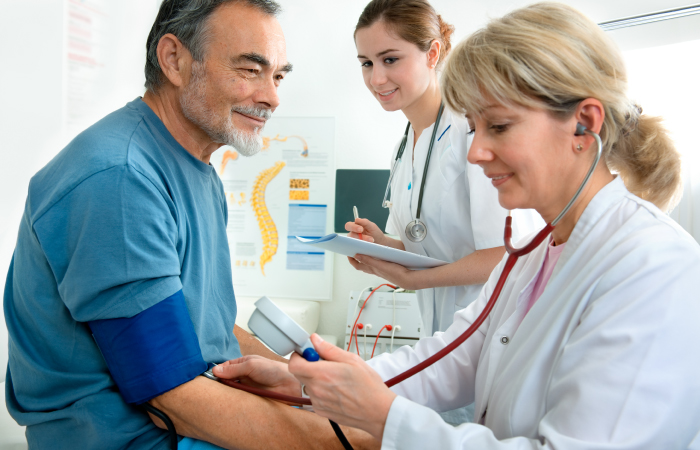Prairie Heart at St. Joseph's combines advanced technology and innovative treatment with a caring tradition, providing quality healthcare close to home.
Meet with Prairie Cardiovascular physicians five days a week. Cardiac testing procedures (EKG, Echo, Stress Test, Cardioversion, and more) are available on-site at St. Joseph’s Breese in the Specialty Clinics.
If you need further advanced heart care services, we provide direct access to the Cardiac Cath Lab at HSHS St. Elizabeth's Hospital, where the Prairie Heart surgeons perform nationally-recognized, life-saving procedures. Prairie Heart at St. Joseph's combines advanced technology and innovative treatment with a caring tradition, providing quality healthcare close to home.
Heart Care
From welcoming a new life to celebrating a life well lived and all the moments in between, your heart beats for those you love.

From welcoming a new life to celebrating a life well lived and all the moments in between, your heart beats for those you love. We know that a healthy heart is as important to them as it is to you. From high cholesterol to high blood pressure and comprehensive heart and vascular care, our team will be right by your side with expert, compassionate care focused on getting you back to those who matter most.

Prairie Heart Institute at St. Joseph's
Cardiac Rehab
Take the steps in the right direction for your heart health
Congestive heart failure
Better understand your treatment options for congestive heart failure
Heart scan
Learn more about this simple procedure to determine your risk for heart attack
Symptoms of a heart attack
Learn more about signs of heart attack in men and women
Electrocardiogram (EKG)
The electrocardiogram is a device capable of recording the electrical activity of the heart from electrodes placed on the skin in specific locations. Physicians use this information to discover such things as heart rate, arrhythmias, myocardial infarctions, atrial enlargements, and others.

Heart monitoring
Advanced technology makes it possible for your doctor to get information about your heart without interrupting your life. Continuous heart monitoring is useful for capturing irregular heartbeats that happen infrequently — in some cases, you may not even feel any symptoms. Depending on your situation, your doctor may recommend heart monitoring.
Blood Pressure Monitoring
A blood pressure monitor consists of a blood pressure cuff connected to a monitor. Blood pressures are taken hourly for a 24 hour period. Physicians then utilize the information to determine hypertension (high blood pressure). This requires a 30 minute appointment.
Holter Monitor
A holter monitor is worn for a 24 or 48 hour period during which the electrical activity of the heart is recorded. The recording is read and the information reported is used by your physician to determine what medical treatment is needed, if any. The monitor is connected to the chest with 5 patches and wires. This requires a 30 minute appointment.
Event Monitor
An event monitor is issued for a 30 day period. Two patches are applied to the chest and connected by wires to a small transmitter. Patches are changed daily by the patient, allowing for bathing. Over a 30 day period, the patient takes a recording when an event or episode occurs. The recording is then transferred via a landline phone to the monitor lab. Physicians utilize this information for heart rhythm abnormalities. This requires a 30 minute appointment.